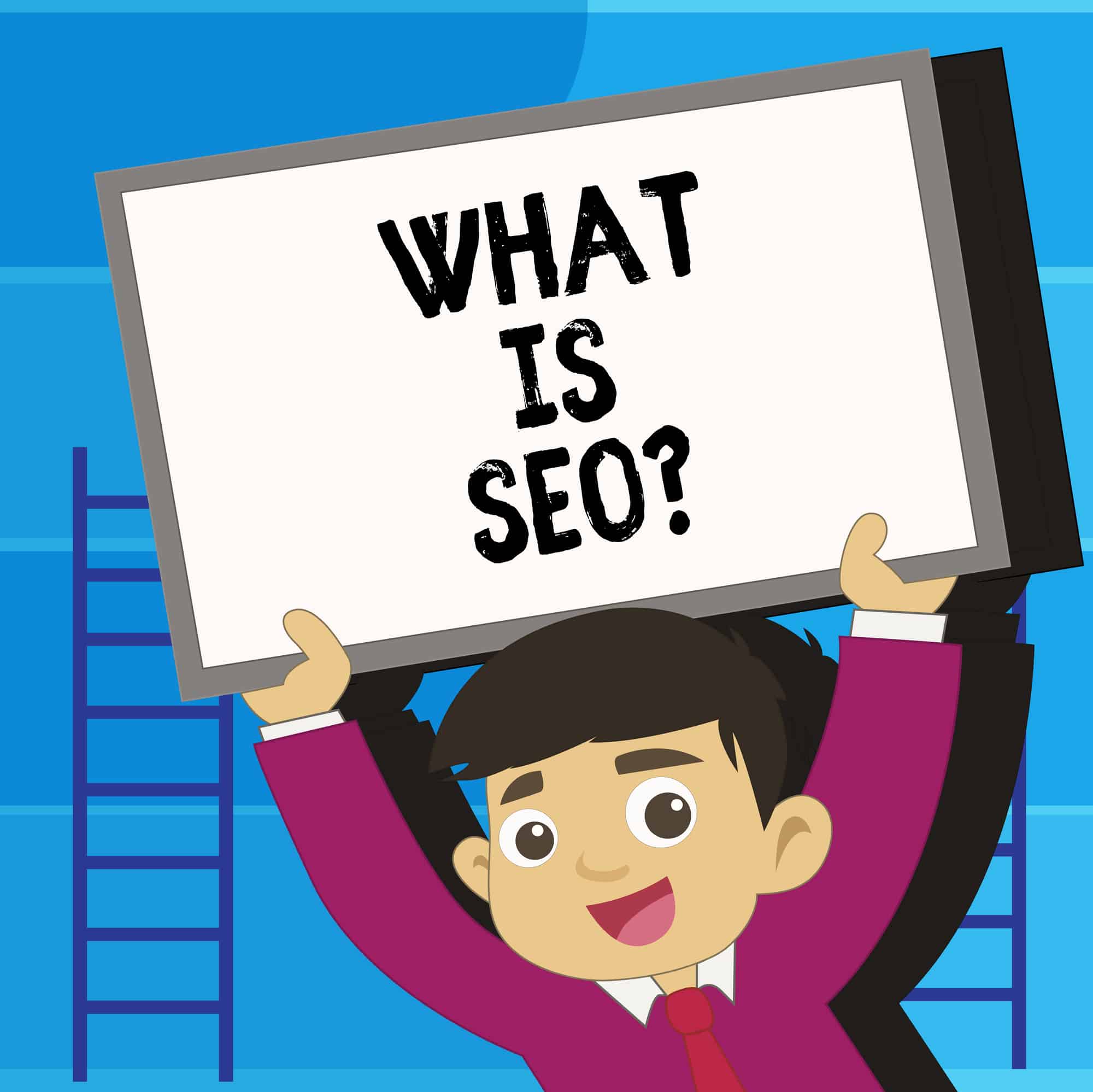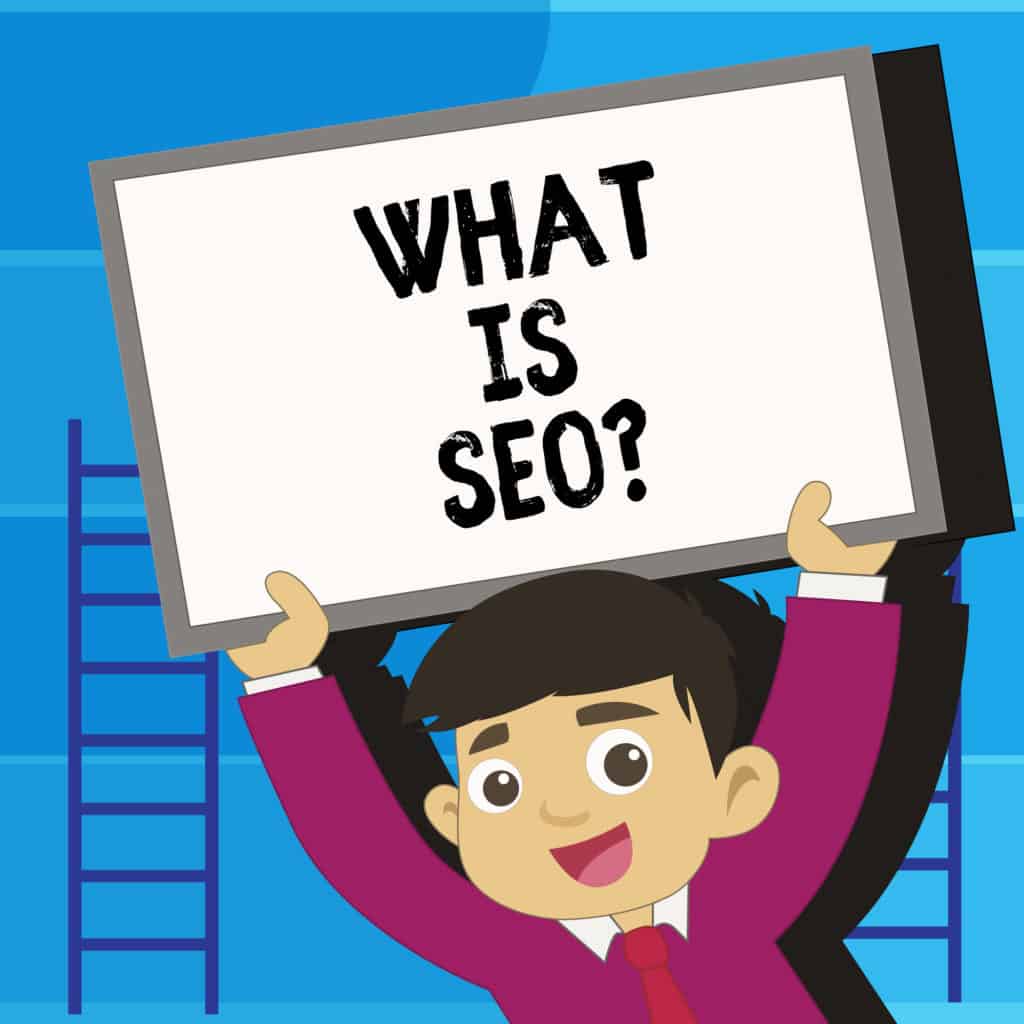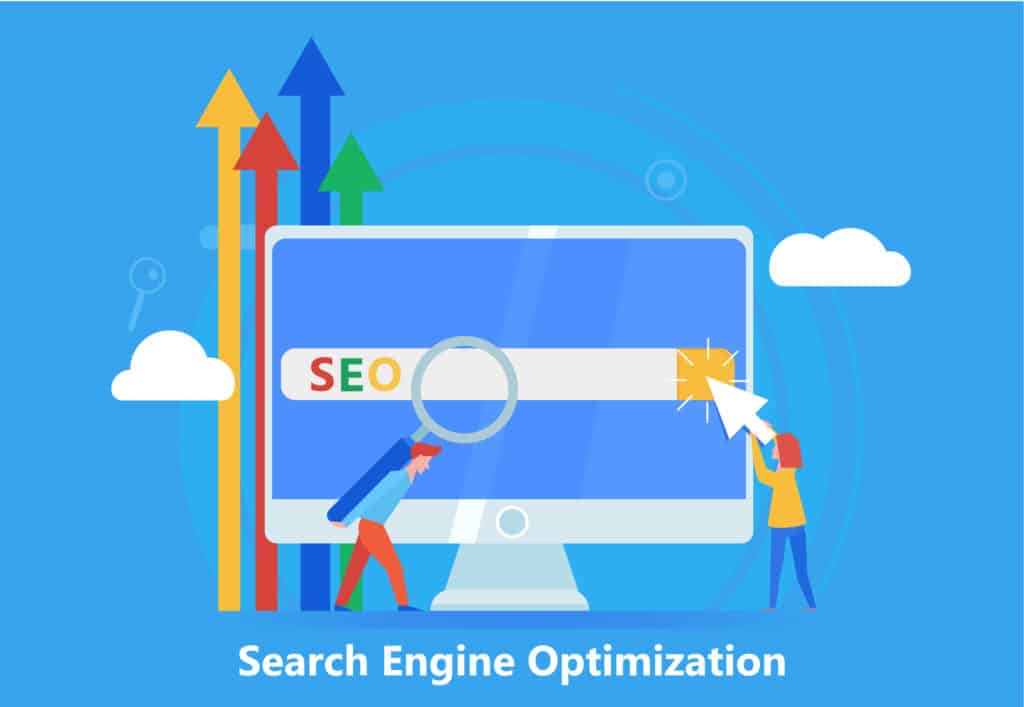What is SEO? For those who haven’t yet taken the plunge into algorithm territory, SEO stands for Search Engine Optimization. It’s a critical tool for any digital marketing campaign and surviving the modern world. Let’s dig deeper for a full understanding.
You might ask yourself ‘Who is SEO?’ or ‘Where is SEO?’, but you’ve got the wrong end of the stick. You need to ask: ‘What is SEO?’
Let’s break it down. This article is aimed to give you a basic understanding of what SEO is, how it works, and why it is important. So, let’s get going!
The ‘SE’ of SEO represents the search engine, and the main search engine you need to familiarise yourself with is Google. Although other search engines are available, Google remains the most popular search engine used by the public; and will be your best friend – or worst enemy – in SEO, depending on how well you optimize your content.
More On This Subject From DRPT
Is Duplicate Content Bad For My SEO?
The Dangers Of Stealing Content And Plagiarism
Think Twice Before Using An Image Of Unknown Origin
This is where the O of SEO comes into play. Optimization is to get the best out of your article or website, and aims to please the search engine (but not in that way), to reach the dizzying heights atop the results page.
Basically, SEO’s main function is to get your website (or article) to the top of the search engine results page, which aligns with the main SEO goal of increasing website traffic to your material.
You got that? In a nutshell, SEO helps build and direct organic traffic to your website. This allows people to find your website naturally through the search bar, without the need for them to only see your content through ads.
If used correctly, SEO can become one of the most effective tools for gaining more leads and revenue. Without organic SEO, you can almost guarantee that no one will find your website. I mean, who even scrolls past the first page in Google these days?
So that’s the basics covered, but the complex nature of SEO makes itself apparent when digging into how it all comes together. If you’re still asking yourself, ‘what is SEO?’, then fear not, we’ll now go on to explain further.
How SEO Works
SEO is not exclusive to Google, but since Google is the most commonly employed search engine, it is the one you’re aiming to address.
Yet, while SEO always has to be used with Google in mind, it’s a complex relationship and dynamic between the two. You have to feed and nurture Google with what it wants, and in return it will rank you higher on the SERPS (search engine results page).
The content that you create must tick the boxes that Google or other search engines want to see. This works both ways, as if you go above and beyond and give Google everything it wants, you will be rewarded.
Search engines can be temperamental if you give them bad or lazy content in regards to SEO. Google will ask itself “what is this SEO nonsense” before deciding what to do next.
Poor SEO will almost certainly put you in the bad books, meaning no sane person will ever come across your content, as it will be so far down the results page.
How To Get Your Content To The Top Of Search Results
Type of Content
The number one rule of SEO is to make original content. Google hates plagiarism and will throw you into the back end of despair within the search results. It might be easier and save you time to quickly copy and paste from another article, but it’s just not worth it.
Google likes new and original content and will reward you for spending a bit more time creating content that is your own. Not only that, but posting fresh material signifies that you remain an active business.
Create lots of content! Search engines are huge fans of active websites. Write a regular blog on your website, create a podcast, or upload videos. The choice is yours! Whatever option you choose, you just need to keep updating your website. Google especially hates inactivity; an inactive website is viewed as an inactive business.
A bit like B.B King, Google enjoys jazzy content. It doesn’t want your page to be one long word document. Try creating ‘how to’ guides, incorporate tables, and display graphics or ebooks to your website. Anything new and original Google will love.
As well as your content being original, it also needs to be of good quality to keep your readers engaged. This may sound daunting, but it really isn’t, the content just simply needs to be tailored to your audience in a way that will keep them coming back to your site.
Your website page also needs to be appealing to the eye, Google doesn’t like large clunky paragraphs of text. They want something that is mobile friendly, visually appealing and doesn’t take long to load.
Put simply, your content needs to be clear and concise, so it doesn’t overwhelm or repel the reader so much that they’ll never return to your page. Keep the layout simple, and inject the content with rich ‘need-to-know’ material.
Keywords
Using keywords remains vital for effective SEO. This is where you need to think about what your audience will be searching for and how they will find your content.
Effectively, if you don’t use relevant keywords that would match what your audience is searching for, you won’t appear in the search results. However, you can’t just throw in random keywords in the hope you’re doing the right thing – producing quality content is more important.
Now, there are two types of keywords that you need to adapt your content for SEO.
Firstly, there are long-tailed keywords. These are often whole phrases that people will search. For example, you might search “what is the weather like in Newcastle tomorrow?”
Whereas other people may just simply search “weather tomorrow”. These are your short-tailed keywords and your content needs to be able to cater to both.
You need to think and be aware of how your audience will be searching for the content that you’re offering.
Backlinks
Backlinks are another key feature to push you up the results page. I know what you’re thinking – ‘Backlinks’ is another scary SEO buzzword. However, you can put down that bottle of anti-anxiety meds. This is nothing to panic about.
Backlinks are essentially links from other websites or articles (they can be your own) that link back to one of your articles or your website.
If you don’t have any backlinks to start with, then they can be achieved quite easily. Firstly by creating links on your website to other areas on your page. This could be adding links to your blog posts that have a connection, or something on your website that is relatable to the content you have created.
This will keep people on your website, which will please Google, but they will also respond positively to the internal backlinks.
With time, you can network with other websites within your field and reach out to ask them if they will include backlinks in some of their content. In turn, you will often have to give them a backlink from your website.
This can be very effective, as Google will applaud you for appearing on other websites. However, it can become interesting at times as some won’t respond to your networking attempts, some will be happy to help, and then some will just flat out refuse. Don’t feel disheartened when this happens. It’s simply part of the process.
Pages with a higher number of backlinks will often rank higher on the search results page, as it tells the search engine that this must be reliable and useful content. A backlink is akin to a vote of confidence from external sources.
Why is SEO important?
Now you know what SEO is, you need to know why it is important.
SEO is important as it is the main tool that will get you to the top of the search engine results page, without having to pay extortionate advert fees.
It really is quite straightforward. The higher up you are on the search results, the more chance your content will get clicked on and receive traffic.
Organic traffic is what you want, and SEO helps you achieve this. It is no good paying for ads if your content is being pushed towards people who show no interest in what you create. SEO enables you to tailor your content specifically for your audience.
Not only will it help increase organic website traffic, but if you’re climbing up the ladders on the results page, it is going to increase your brand awareness.
If you’re appearing at the top of the search within your target area, people are going to start recognising you as a business and hopefully begin using your services.
The higher you rank on the Google results, the more trustworthy you become as a business. If you do climb up the ladder, you will in turn get more clicks and traffic to your website.
I’ve made this point before, but it really needs to be drilled home. If SEO is done correctly and effectively, it will help to grow and direct traffic to your website. If your SEO strategy is done poorly and lazily, you’ll never be seen again in a search engine results page.
Ultimately, SEO can be used to help you move above and beyond and beat the competition. Need a helping hand? Get in touch with us through our contact page. We can help you.














